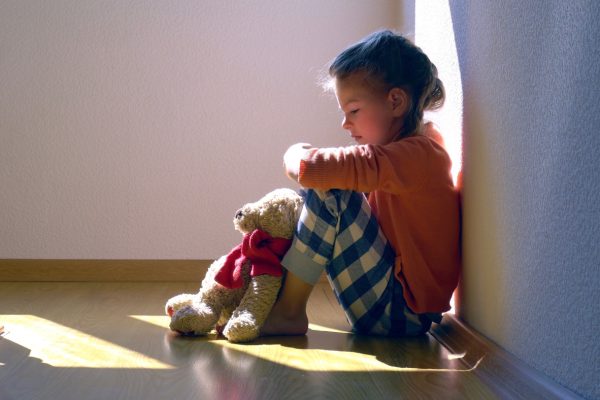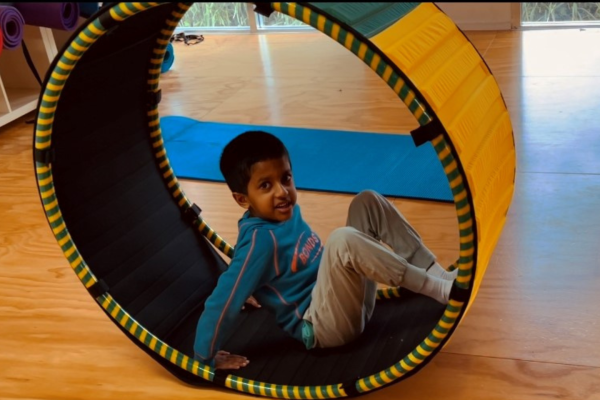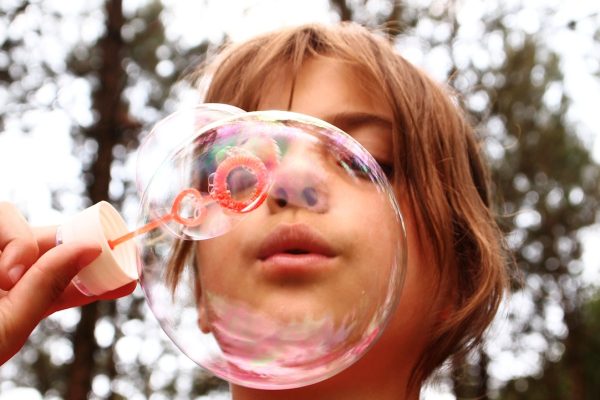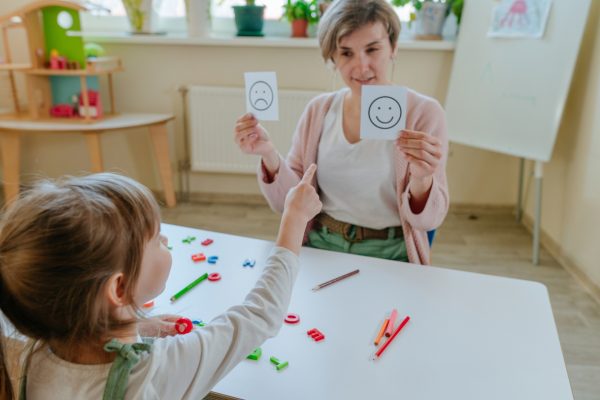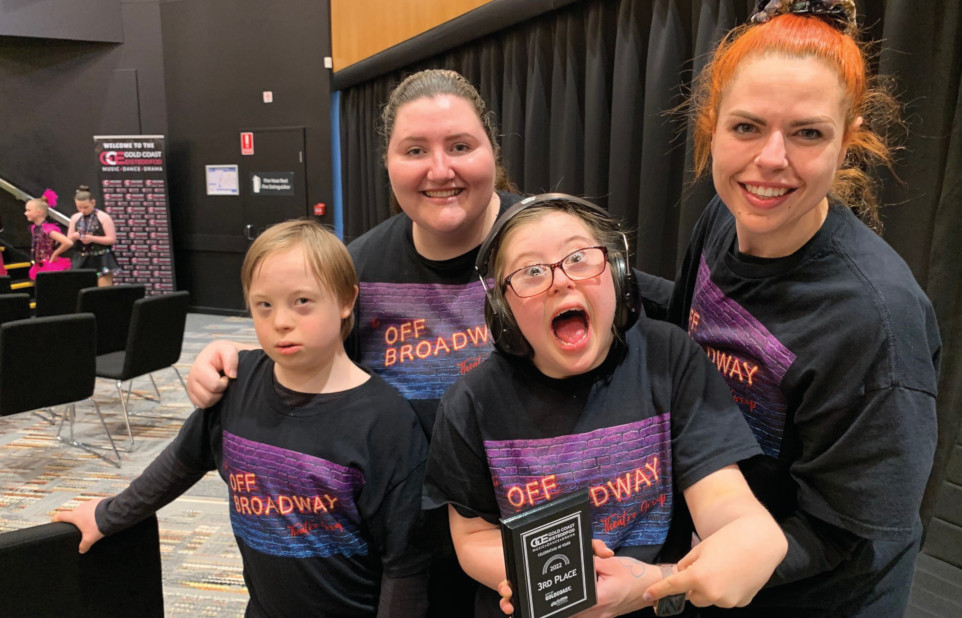
Down syndrome in the spotlight
Following Down Syndrome Awareness Month which took place in October, Australia’s Down syndrome community is poised to take centre stage again in July 2024, as the eagerly anticipated World Down Syndrome Congress convenes in Brisbane.
To gain a deeper understanding of the evolving landscape surrounding awareness, acceptance, and advocacy, we chatted with Cally Ward, proud mum to Sarah, a 14-year-old who has Down syndrome. Cally wears three hats; an everyday mother to a teenager, an advocate for Sarah as a person with disability, and as an advocate for the community through her role as a director of Down Syndrome Queensland (DSQ). As one of six voluntary DSQ board members, she plays a crucial role in shaping the organisation’s strategy and goals.
AWARENESS
When asked what awareness raising now means to Cally, she told us, “Because it is the most common intellectual impairment, Down syndrome arguably needs the least amount of pure awareness raising. And I say that from the perspective of knowing friends whose children have rare disorders, perhaps one in 50,000. In reality, an average Australian would need to be living under a rock to not come across people with Down syndrome in everyday life. Awareness for our community has moved into a different space. For me awareness now translates as acceptance and an evolving conversation we want to have with the general community”.
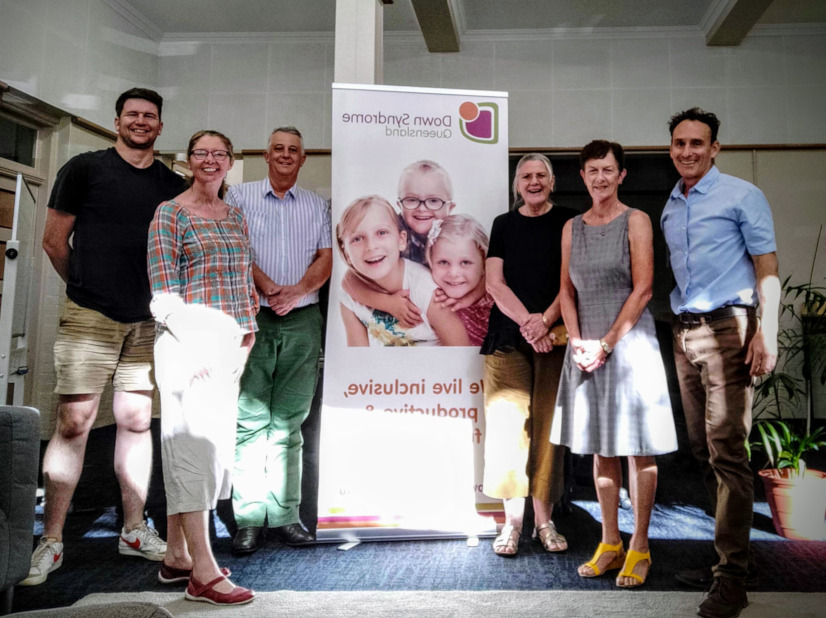
A PARENT’S ACCEPTANCE
“Acceptance to me means appreciating and valuing what Sarah contributes to the community and not trying to repackage her into a neurotypical box. This has been a journey as much for me, as it has for our community.
Prior to being Sarah’s Mum, the core values that were drummed into me by my parents were being compliant, responsible and punctual. All those values are irrelevant to me now, but they still underpin my basic psyche, so I struggle with this every day. Punctuality is a classic example. Sarah is a teenager who wants choice and control in her life. She demonstrates this by being ready for an event on her terms, when she’s ready. We get there when we get there. I can’t make Sarah punctual, so in the words of Elsa,
I am trying to Let It Go, accept Sarah for what she is and adapt my expectations and lifestyle to fit her.
COMMUNITY ACCEPTANCE
Moving on from my own personal acceptance of Sarah, the next step for me is creating a community around Sarah which values her and her contribution. In our everyday lives, two groups of people have welcomed Sarah and support her to live her best life.
First, the local bowls club, with its diverse group of patrons have embraced Sarah with open arms. The regulars love Sarah and her passion for music and performance. They cheer when she sings; they get up and dance with her. Their support has allowed us as parents to relax and let Sarah be herself, exploring her boundaries in a safe environment where everyone knows and accepts her.
Secondly, the local NRL team, the Gold Coast Titans, have created a wonderfully inclusive community where diversity is supported and celebrated. This starts with the team itself and the work they do every day in the community, but the real benefit is when their leadership spills over into the general public.
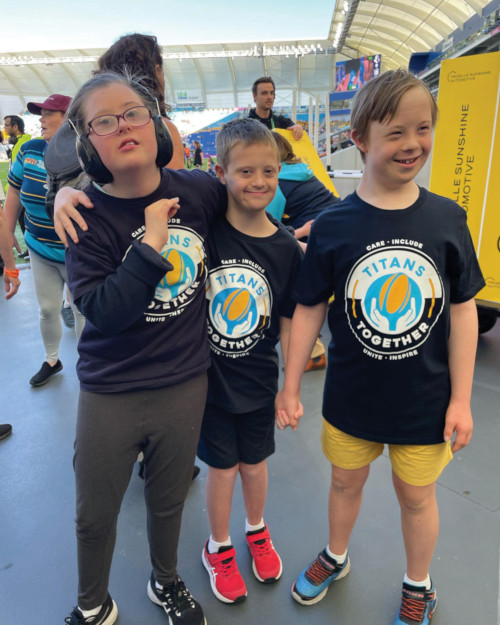

Her personal mission is to create the best opportunities possible in the long term for the Down syndrome community.
ADVOCACY
Cally’s formal advocacy on behalf of the Down syndrome community occurs through her role on the DSQ Board. Her personal mission is to create the best opportunities possible in the long term for the Down syndrome community.
Cally says, “I work in infrastructure and to plan and design, we look 20-30 years into the future. When you do that in the Down syndrome population, what you find is a very different age profile to what we have today. Historically, life expectancy has been poor, primarily because today’s older generation were brought up in institutions and didn’t have access to good health care. The next age cohort have flourished in a supported family environment, resulting in a generation of people with better health and greater life expectancy. This is wonderful and as it should be, mirroring increasing life expectancy in mainstream society”.
WHERE TO NEXT?
Through DSQ, the focus is on the implications of an aging population. Cally says, “In 20-30 years, people with Down syndrome will have different needs in terms of support and care, when you factor in the reality that most people will outlive their parents. At DSQ we are considering what that future looks like and the conversations we need to have with government and its agencies, to plan and design for that future. It’s wonderful to have the opportunity to contribute to the debate”.
World Down Syndrome Congress 2024 in Brisbane
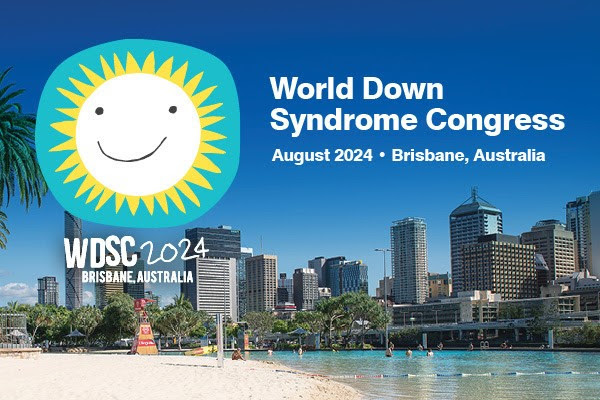

The World Down Syndrome Congress takes place in Brisbane in July 2024, bringing together people with Down syndrome, family members, researchers and service providers to showcase the latest research and best practice as well as
the lived experience of Down syndrome from around the world. Cally says this is an amazing opportunity for our Australian community to unite with the global community,
to learn and hear the latest in research and trends. “I urge everyone to sign up for updates and plan some winter sun in Brisbane!”
This is going to be a once in a lifetime opportunity to attend Congress in Australia. Not only can you attend Congress, but everyone is also welcome to participate through running workshops, talks, exhibiting art work, and more. If you would like to participate, or register to attend, please visit: wdsc2024.org.au



